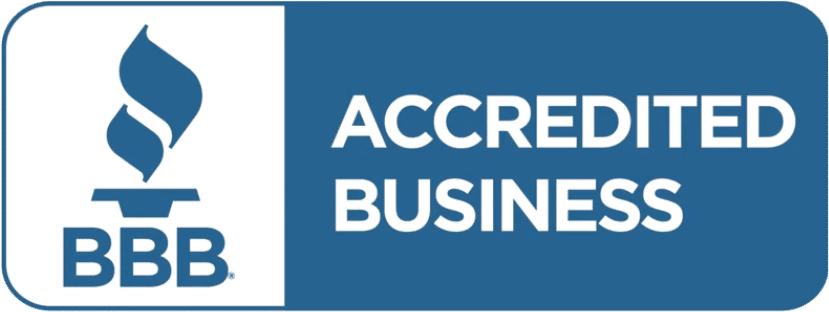Labour Market Impact Assessment (LMIA)
Hire Temporary Foreign Workers for Your Critical Workforce Needs
Running a business in today’s competitive landscape isn’t easy. Scaling operations, managing day-to-day tasks, and finding the right talent can feel insurmountable. Despite your best efforts—posting job ads, conducting interviews—the perfect fit remains elusive. Your business can’t afford delays. You need efficient, reliable hiring solutions. That’s where we come in.
With the Temporary Foreign Worker Program (TFWP), your business gains access to a global talent pool, bridging critical workforce gaps when local candidates are unavailable. At the core of this process lies the Labour Market Impact Assessment (LMIA), a vital document that ensures hiring foreign workers won’t negatively impact Canada’s labor market.
Our mission is to simplify, expedite, and make this process affordable, empowering you to focus on growing your business.

Key Benefits of Partnering with Us

Support:
From start to finish, we’re by your side to answer questions and provide guidance.

Custom Solutions:
We tailor our services to meet your unique needs, ensuring the best outcomes for your business.

Advertising:
We manage job advertisements on your behalf to ensure compliance and visibility.

Paperwork:
We handle all documentation and application processes, saving you time and effort.

Compliance:
Ensuring every step meets ESDC standards and other regulatory requirements.

Updates:
We keep you informed at every stage, providing timely updates and insights into the progress of your applications.

Work Permits:
We assist in obtaining work permits for your workers, ensuring a seamless onboarding process.

Retention:
If your workers prove to be invaluable assets, we help them transition to permanent residency, securing their long-term contribution to your team.

Speed:
Fast-tracking your hiring process with minimal delays.

Expert Advice:
Our experienced team ensures that you navigate the hiring process with clarity and confidence.
Trusted by Businesses Big or Small





















































Explore LMIA Pathways
Explore multiple streams tailored to meet the specific needs of your business:

High/Low Wage Stream
Whether you need skilled professionals or general laborers, we ensure compliance with job requirements and wage thresholds, streamlining the hiring process. Explore

Agriculture Stream
For agriculture and agri—food businesses, we help you secure dependable workers for farming, harvesting, food processing, and packaging, ensuring growth and sustainability. Explore

Global Talent Stream
When time is critical, this pathway brings top-tier skilled workers to Canada quickly to meet your project or business demands. Explore
Navigating the LMIA Process: Step-by-Step Guide
Posting the Job
Advertise your position for at least four weeks on platforms like the Government of Canada’s Job Bank, online job boards, or professional networks.
Documenting Efforts
Review applications, interview candidates, and document all efforts to hire locally.
Submitting the Application
Provide details on why hiring a foreign worker is necessary.
The Government Review
ESDC evaluates your application for compliance and eligibility for a positive LMIA.
Documents Required for an LMIA Application
The documents you’ll need for your LMIA application can vary depending on your business type, location, and the role you’re hiring for. While requirements may differ based on specific circumstances or updates to government programs, here’s a general checklist to guide you through the process. This list isn’t one size fits all, so it’s important to check if any additional documents are needed for your unique situation. Having the right paperwork ready not only makes the process smoother but also shows your commitment to following all guidelines.
Job Advertisement Details: Include proof of where, when, and how long you advertised the job. This shows your effort to hire locally before seeking a foreign worker.
Business Documentation: If this is your first LMIA application, provide your business registration or legal incorporation documents. Employers hiring in-home caregivers don’t need to submit this.
Provincial/Municipal Business License: First-time LMIA applicants, except those hiring in-home caregivers, must include their business license.
Canada Revenue Agency (CRA) Documents: Corporations should provide T2 Schedule 100 (Balance Sheet Information) and T2 Schedule 125 (Income Statement Information) for their first application. Employers in film, entertainment, or in-home caregiving are exempt.
Workplace Safety and Insurance: If required, submit a clearance letter or certificate from your provincial or territorial workers’ compensation board.
Commercial Lease Agreement: Include this document where applicable, but it’s not needed for in-home caregiver employers.
Film and Entertainment Industry: For roles in this industry, submit a copy of the employment contract, unless the position is in film or TV production.
Provincial Employer Registration Certificate or Exemption Proof: Employers in British Columbia, Manitoba, Nova Scotia, and Saskatchewan must provide provincial registration certificates or proof of exemption, as these provinces have specific rules for hiring foreign workers.
British Columbia: Provincial website: Register to hire foreign workers Provincial law: Temporary Foreign Worker Protection Act
Manitoba: Provincial website: Employer Registration Information Provincial law: Worker Recruitment and Protection Act
Saskatchewan: Provincial website: Apply for a Certificate of Registration Provincial law: Foreign Worker and Recruitment Services Act
Nova Scotia: Provincial website: Apply for a Certificate of Registration Provincial law: Foreign Worker and Recruitment Services Act
Employer Compliance: Your Responsibilities
Hiring temporary foreign workers comes with obligations. You must:
✓ Adhere to LMIA terms and employment laws.
✓ Maintain records for at least six years.
✓ Notify ESDC of any significant changes.
✓ Be prepared for inspections to verify compliance.
Noncompliance can lead to penalties, bans, or public disclosure of violations. That’s why working with a trusted partner like us is crucial.
Making Changes to LMIA
Modifying a Pending LMIA
If you need to modify a pending Labor Market Impact Assessment (LMIA) application, immediately contact Service Canada or the Employer Contact Centre. To switch to a different LMIA stream, you must withdraw your current application and submit a new one. Note that processing fees from the original application are non-refundable and cannot be transferred.
Modifying a Positive LMIA
If you need to make changes to a positive LMIA, it’s important to understand the type of modification and your responsibilities:
Service Canada Small changes like slight job duty adjustments, wage increases within 2%, inflation adjustments, or compliance with legislative wage changes. These often don’t require reporting, but it’s recommended for updates like contact information changes or administrative corrections.
Material Modifications: Significant changes such as altering job duties (changing the TEER code), wage reductions, large wage increases, changes to benefits, work hours, or educational requirements. These require submitting a new LMIA and notifying ESDC.
Voluntary Disclosure: If changes conflict with the LMIA terms, voluntarily inform ESDC to avoid penalties like warnings, fines, or bans from the Temporary Foreign Worker Program (TFWP).
To stay compliant, follow the LMIA terms closely and report any significant changes promptly to ESDC. For more information, visit the Temporary Foreign Worker Program website or contact the Employer Contact Centre.
ESDSC Contact Number
Canada and the United States: 1-800-367-5693 (Toll-Free)
Outside Canada and the United States: 506-546-7569
Hours of operation: 7:00 am to 8:00 pm Eastern Time, Monday to Friday
Ready to Simplify Your LMIA Process
For over a decade, Can X have been a trusted partner for businesses across Canada, offering fast, affordable, and reliable LMIA solutions. From eligibility assessments to crafting compliant job postings, preparing detailed LMIA applications, and representing you with ESDC, our expert team ensures every step is handled with precision and care. We understand the challenges of the LMIA process and are here to simplify it, helping your business secure the talent it needs to succeed. Contact us today to start your seamless LMIA application journey.
FAQs About LMIA
The TFWP allows Canadian employers to hire foreign workers temporarily when no Canadian citizens or permanent residents are available to fill the job.
The standard fee is $1,000 CAD per position. Some exemptions apply, such as for agricultural jobs, and caregivers for individuals with medical needs.
No, LMIAs are only approved for full-time positions, which means at least 30 hours per week.
Employment can be terminated according to labor laws and the contract. The employer must notify Service Canada about the termination or any significant changes in employment.
Yes, but you must apply for a new LMIA reflecting the new role, and the worker must apply for a new work permit.
You can apply up to six months before the anticipated job start date.
Yes. Minor changes, like wage adjustments within limits, usually don’t need reporting. Significant changes, such as altering job duties or hours, require a new LMIA application.
Material modifications include changes to job duties, TEER codes, hours, benefits, or wages that significantly alter the original terms. These require a new LMIA and must be reported to ESDC.
You can reach ESDC through the Employer Contact Centre at 1-800-367-5693 (Canada/US) or 506-546-7569 (internationally). Hours: 7:00 am–8:00 pm ET, Monday to Friday.
An LMIA (Labour Market Impact Assessment) is a document issued by ESDC/Service Canada. It confirms the need for a foreign worker and verifies that no qualified Canadians are available for the job.
There’s no fixed limit, but applications depend on the employer’s needs, caps on low-wage roles, and regional unemployment rates.
It can be challenging, as employers must show they have tried to hire Canadians first and prove a genuine labor shortage. Some industries with critical labor shortages may find the process easier.
You must adjust the worker’s wage to meet the new minimum wage, even if it’s higher than the wage approved in the LMIA. Provincial labor laws always take precedence.
You can increase wages to align with updated prevailing wage rates or include regular pay raises in the original LMIA application. This avoids compliance issues during audits.
Processing times vary by application type and region. Check the official ESDC website for current timelines.
Minor modifications include slight changes in job duties, small wage increases, or updates for compliance with new wage laws. These often don’t require reporting to ESDC.
Voluntary disclosure means informing ESDC of any changes that don’t comply with the LMIA terms. This helps avoid penalties such as fines or bans from hiring foreign workers.
Penalties for non-compliance include warnings, administrative fines, or bans from participating in the Temporary Foreign Worker Program (TFWP). Serious violations may also lead to public disclosure of non-compliance.
Got more questions? We’re here with the answers!
Got more questions? Unsure about the process or what’s next? We’re here to guide, support, and simplify every step of your journey.
Your journey begins with one conversation - let’s start now!






